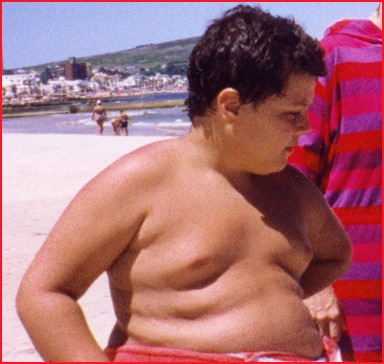
Because so many of the indicators and risk factors of childhood obesity overlap with matters of ethnicity and poverty (which is disproportionately linked to ethnicity), it is not surprising that civil rights organizations have taken an interest in childhood obesity issues. If public policy is to be made and enforced, they want their groups taken into consideration and their voices heard in the debate.
MALDEF, described as the law firm of the Latino community or the Latino voice for civil rights in America, is backed by the Robert Wood Johnson Foundation, which is greatly interested in ending childhood obesity. The MALDEF webpage says:
This alarming trend has disproportionately impacted low-income communities and communities of color. For example, Mexican American and African American youth ages 6 to 11 are more likely to be obese or overweight than white children, and Latino and African-American children are more likely to develop diabetes than white children.
The organization sees its mission as educating policymakers at every administrative level…
[…] about the need for cultural competence and public resource equity in our food policy programs and legislative proposals that are aimed at addressing the broad issue of childhood obesity prevention.
People need to make healthy food choices, and they need places to buy nutritious food. Schools need to pay attention to what they are feeding kids and making available in vending machines. Schools and cities need to provide adequate safe play areas. All these things are susceptible to influence, by reaching the minds and emotions of lawmakers, bureaucrats, and ordinary citizens.
Another active organization is the League of United Latin American Citizens (LULAC) which also cites the presence of “many barriers that prevent access to healthy and affordable foods, and safe places for physical exercise.” Its webpage mentions “food insecurity” as contributory to childhood obesity, and this is an example of how many different facets such a large societal problem typically has.
Some kids overeat because of unaddressed emotional needs, and if food is always around, they’ll eat constantly. This can happen to a child of any ethnicity or economic stratum. Other kids get fat because the household they live in is always stocked with junk food and empty-calorie treats, which are so easy to get hooked on. Again, this can happen to a kid of any race, at any income level.
But there is a certain kind of neediness for food that only strikes children in homes where the future of eating is uncertain. If a child is frequently hungry, and sometimes even if there have only been one or two spells of outright hunger, it can have an effect. When food is available, they might have a tendency to overeat, through anxiety, because of never being inwardly sure if there will be something to eat tomorrow or next week.
The sociologists call this “food insecurity,” and it is more subtle than a growling empty stomach, but it’s a real thing for a certain number of kids, and quite possibly a factor in their obesity. LULAC says:
According to the Centers for Disease Control, 65% of adult Hispanics are overweight or obese. Hispanics are also less likely to have adequate health insurance coverage than any other racial or ethnic group in the US… The CDC estimates that for children born after the year 2000 1 in 3 will develop type 2 diabetes. For Hispanic children the figure is even more alarming. 50% of Hispanic children born after 2000 will likely develop type 2 diabetes.
For a number of different reasons, a bunch of kids are growing up to be adults with extra poundage and a constellation of obesity-related medical problems.
Your responses and feedback are welcome!
Source: “Preventing Childhood Obesity,” MALDEF.org
Source: “Obesity,” LULAC.org
Image by FBellon.

 FAQs and Media Requests:
FAQs and Media Requests: 











